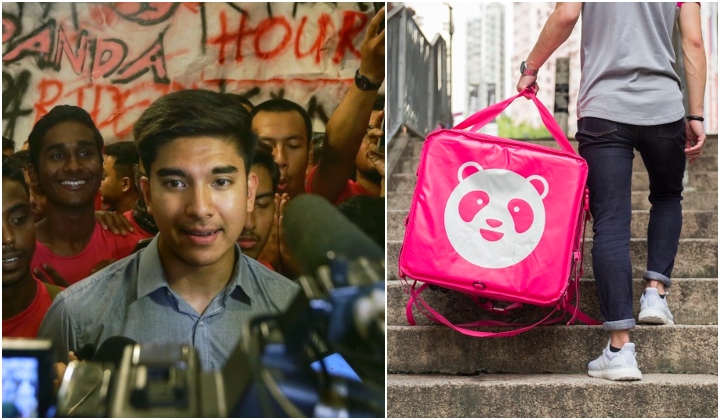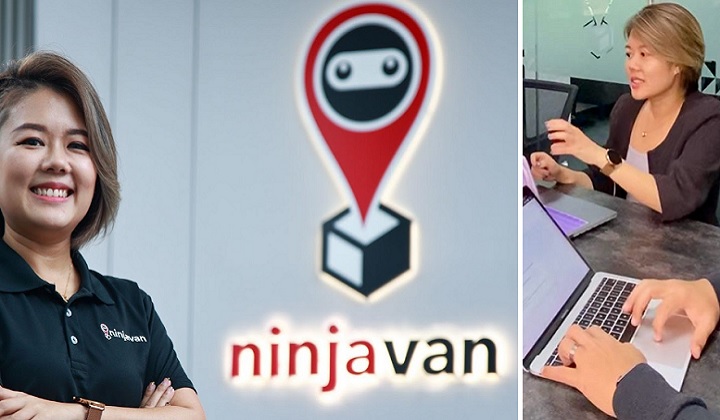Here’s why Syed Saddiq is going to propose new law for gig economy workers

After a two-hour talk with about 100 food delivery riders Foodpanda and Grab Food, Youth and Sports Minister, Syed Saddiq came to the conclusion that Malaysia needs a new law to regulate the gig economy, promising to raise the issue at the Cabinet meeting today.
“While we want to ensure that this gig economy grows, and for companies to be able to make hundreds of millions in revenue and profit, we cannot at any time, forget the workers, who in the end earn the company a handsome revenue.â€
Syed Saddiq via Malay Mail

The discussion highlighted problems freelancers working in the Malaysian gig economy are facing.
Complaints made by the riders included:
- Riders were not covered by company insurance.
- Riders did not have financial safety nets such as the Employees Provident Fund (EPF) or Social Security Organisation (Socso).
- Maintenance, food delivery bags and company corporate shirts were borne personally by riders.
- The policy changes were made without consulting riders, tying them to a 14-hour work-day without proper wages.
- Companies cared more about the food deliveries, even when riders were involved in road accidents.
- Penalisation if too many deliveries were cancelled.
Penuh rider foodpanda dekat southkey malam ni buat mogok dan bantahan pic.twitter.com/W2o08y4bVC
— abdö (@akhdgaf) September 27, 2019
“Tonight Southkey (Johor Bahru) was packed with Foodpanda riders on protest.â€
FYI, the gig economy is a free market system which involves hiring people for temporary positions or contracting independent workers for short term engagement.
In Malaysia, the abundance of online job platforms has made it easier for people to freelance and earn a living in the gig economy.
Common gigs include renting out spare rooms on Airbnb, driving for e-hailing companies and becoming food delivery riders for Grab and Foodpanda and selling stuff on platforms like Lazada, Mudah and Carousell.

So the next question that comes into play is: Why aren’t those working in the gig economy protected under the current employment laws?
Well, we’re NOT lawyers, so we can’t say for sure.
But we did some research from Ask Legal’s website and here’s what we found:
It depends if you signed a “Contract OF Service†or a “Contract FOR Serviceâ€
If you signed a “Contract OF Serviceâ€, you a typical employee and protected under the Employment Act 1995.
But a “Contract FOR Service†is what is usually signed when you are providing a service for someone else, such as cleaning services, security services and FREELANCERS (like those in the gig economy).
Regular employment laws don’t apply to these people.
However, even if you signed a “Contract FOR Service†it ALSO depends on your job scope.
Even if you are called a freelancer, but you work full time, you might actually be a typical employee.

Here’s how to figure out which one you are:
- Does your employer decide what you do, how you do it and when you do it?
- Is your role integral to the company’s business operations?
(For example, without delivery riders, a food delivery company cannot provide delivery services to their customers). - Do you train and acquire your own skills, are responsible for your own profit/loss and run your own business?
- Is your employer obligated to provide work to you and are you obligated to do that work?
(If your employer doesn’t send you the work, can you receive tasks from elsewhere? And, if you don’t do the work, will you get penalised for it?).
Pretty complicated right?
So, Syed Saddiq might be on to something when he says we need new laws.
Speaking of new laws, has anybody else realised that our Employment Act 1955 is 64 years old? It’s so old, it was made PRIOR to Merdeka!
Know anything about the gig economy or labour laws in Malaysia? Share your thoughts with us on our Facebook, Twitter and Instagram!
Starving forensic investigator turned writer cause she couldn't find a job. Used to search for killers now searches for killer stories.








